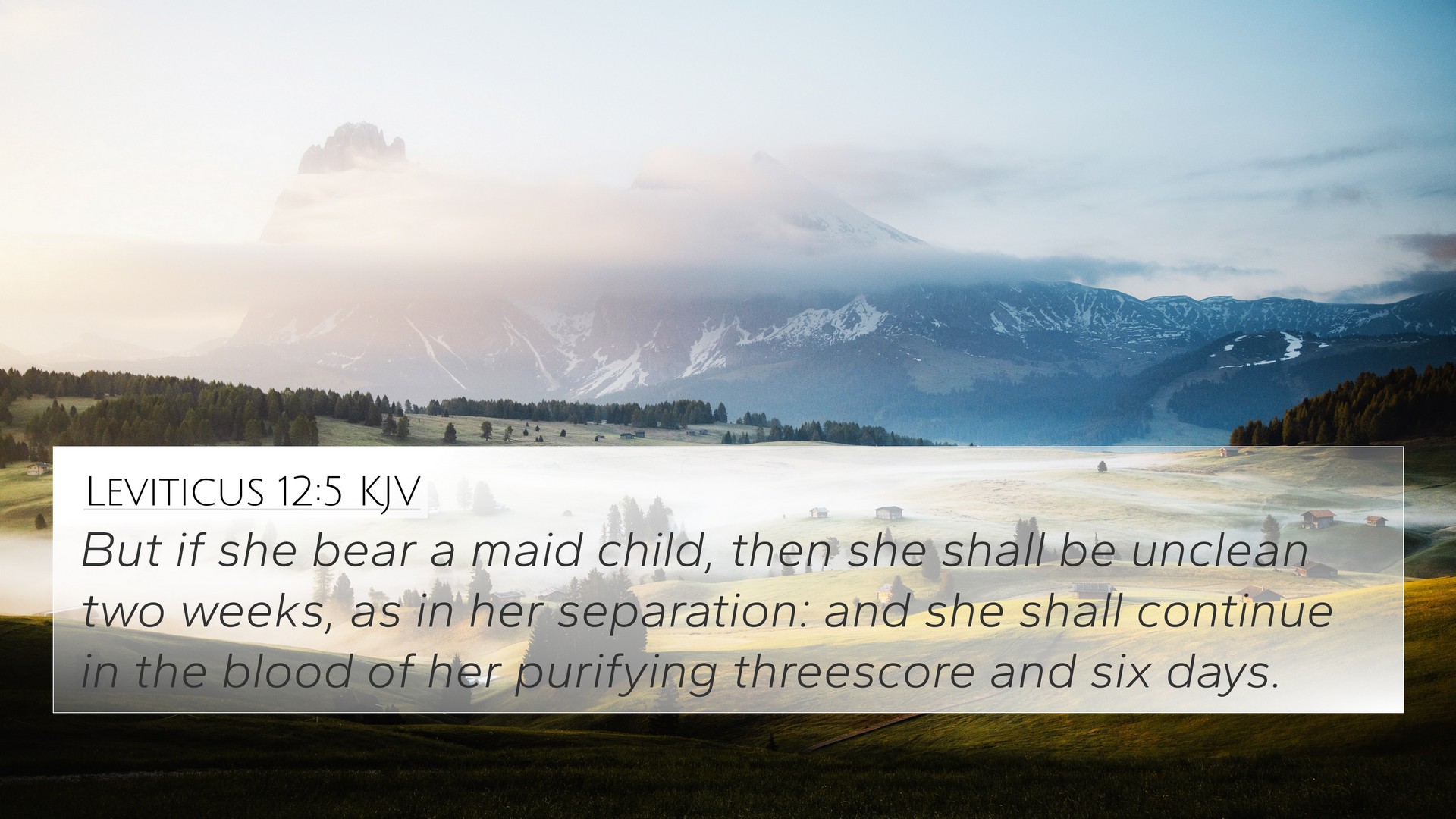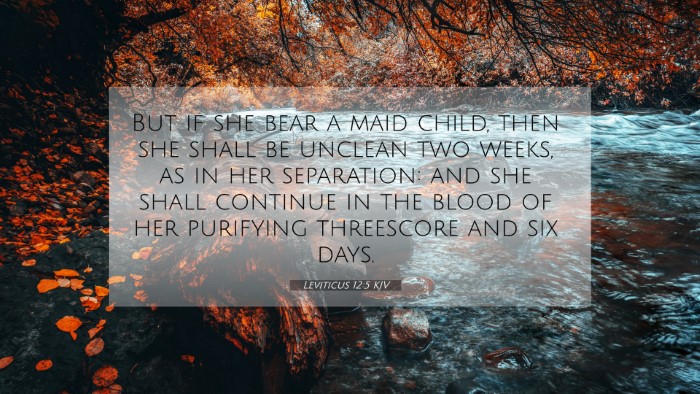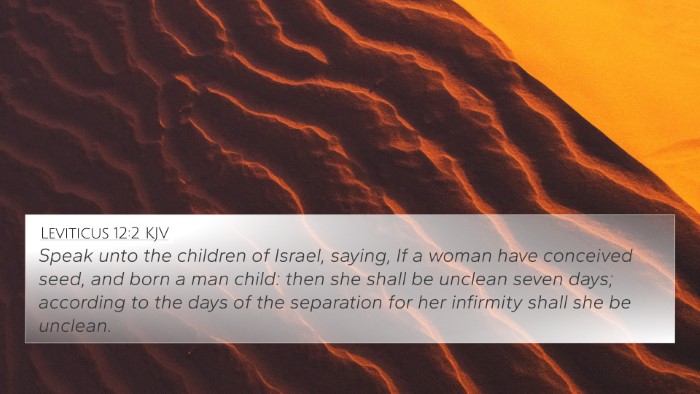Understanding Leviticus 12:5
Leviticus 12:5 states: "But if she bears a female child, then she shall be unclean two weeks, as in her menstruation; and she shall continue in the blood of her purification for sixty-six days."
This verse addresses the ceremonial laws regarding a woman's purification period after childbirth, particularly noting the period of uncleanness for the birth of a female child.
Summary of Insights
The verse highlights significant themes regarding purity, gender differentiation in the consequences of childbirth, and the underlying principle of holiness that pervades the Mosaic Law.
Contextual Analysis
Within the context of Leviticus, this chapter provides the Israelites with instructions from God concerning ritual purity and sacrifices. The distinction between male and female childbearing and their associated purification rites illustrates the cultural and religious norms of ancient Israel.
Purification Period Explained
According to public domain commentaries, such as those by Matthew Henry and Albert Barnes, the extended purification period for women who bore female children was likely influenced by societal views on the gender dynamics of that time.
Spiritual Significance
Adam Clarke suggests that this regulation reflects God's awareness of human conditions, emphasizing the need for purity and separation during significant life events, such as childbirth. It embodies the nature of God's holiness and the call for His people to live in a manner that reflects His standards.
Related Bible Verses
- Leviticus 12:2 - Provides a general overview of the purification after childbirth.
- Leviticus 15:19 - Discusses issues of menstruation and impurity.
- Numbers 19:11 - Further explores the theme of ceremonial uncleanness.
- Luke 2:22 - Illustrates how Mary followed these purification laws after birthing Jesus.
- Matthew 9:20-22 - Highlights the significance of blood and purity in New Testament narratives.
- Genesis 3:16 - Relates the consequences of childbirth to the theme of gender roles established post-Fall.
- 1 Timothy 2:15 - References the salvific role of women through childbearing, echoing themes of purity.
Comparative Bible Verse Analysis
Analyzing Leviticus 12:5 alongside the verses mentioned allows for a comprehensive understanding of Biblical themes surrounding purification, gender roles, and the inherent holiness expected from God's people. Each of these verses contributes to an overarching narrative of God's design for human relationships and societal order.
Thematic Connections
The insights drawn from Leviticus 12:5 aid in a broader thematic discussion around purity laws, gender significance in ancient Israel, and the relationship between Old and New Testament principles. Understanding these themes can be crucial for anyone engaging in Bible cross-reference studies or looking to identify connections between Bible verses.
Cross-Referencing Biblical Texts
Leviticus 12:5 serves as an essential reference point for exploring the connections between various biblical texts. Employing tools for Bible cross-referencing, such as a bible concordance, can enhance one's study and understanding of scripture.
Utilizing Cross-Reference Bible Study
By identifying related verses, scholars and laypersons can conduct a more thorough analysis of themes such as purity, law, and grace. Thus, understanding the implications of Leviticus 12:5 offers a gateway into a richer study of connecting biblical themes.






